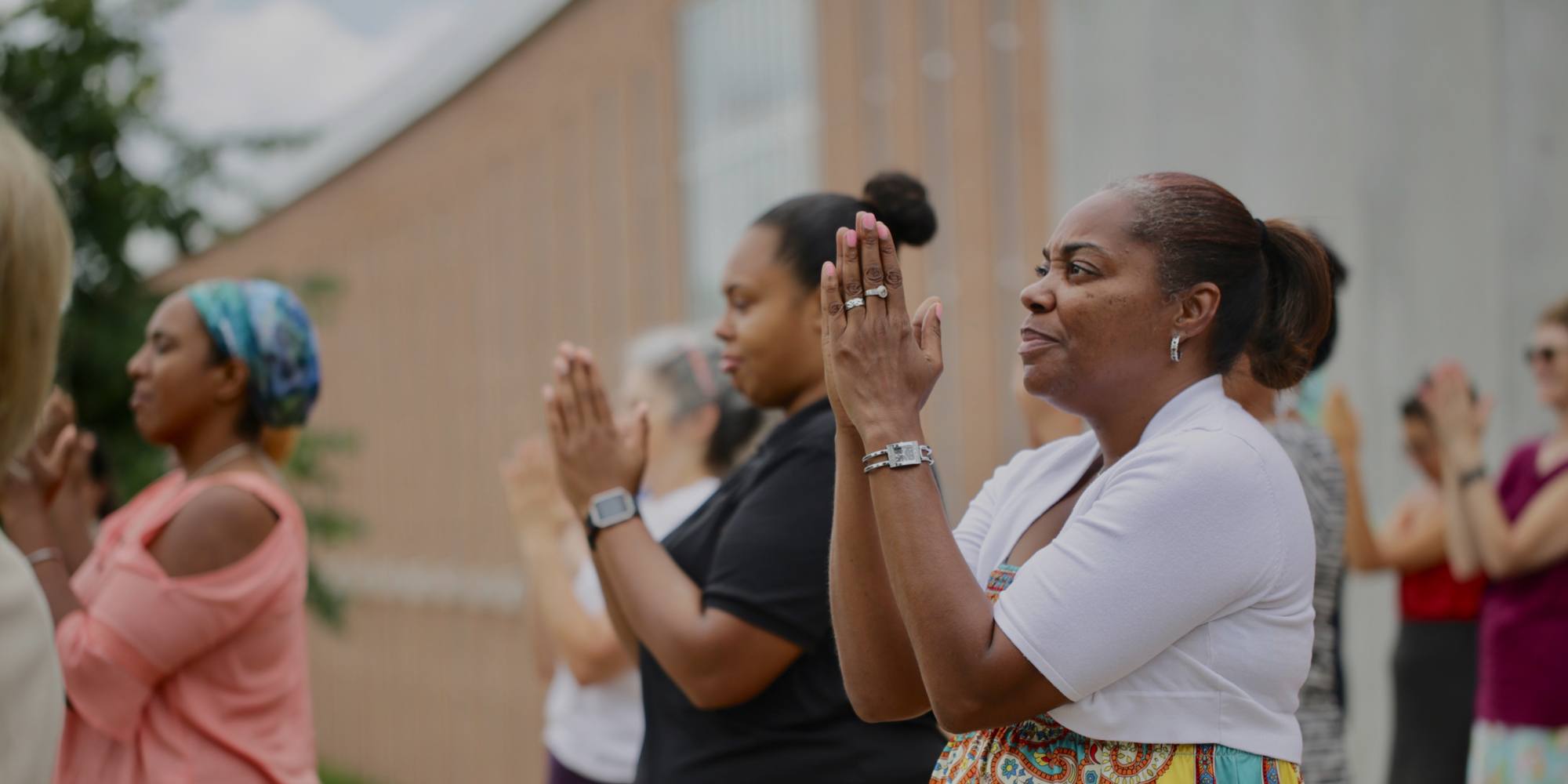Waging
Peace

“If you want to identify me, ask me not where I live, or what I like to eat, or how I comb my hair, but ask me what I am living for, in detail, ask me what I think is keeping me from living fully for the thing I want to live for.” — Thomas Merton
Emotions are running high right now. Anger, fear, and grief layer on to historic and collective wounds and become our new normal. The community stressors we face are intense: The pandemic, now in its second year. The trial now underway in the killing of George Floyd, and all the pain it resurfaces. Two mass shootings, one targeting Asian-American women.
This kind of chaos is a constant assault on our bodies, minds, and spirits. It is exhausting, and it may increase vulnerability to physical and mental dis-ease by causing inflammation in our bodies and suppressing our immune systems.
You may notice more digestive problems, body aches, poor sleep, or increased irritation. These can be indicators of a sympathetic nervous system on sustained alert, pumping stress hormones like cortisol and adrenaline into your system at heightened levels. Chronically high levels of cortisol are known to reduce muscle mass, increase fat, impair memory and learning, cause anxiety and sleep problems, and damage internal organs. Our survival brain—the amygdala—takes over, keeping us stuck in flight/fight/freeze reactivity and reducing access to the prefrontal cortex, the part of our brain where executive functioning resides and where compassion, critical thinking, and creative problem solving are available to us.
To manage chaos and be the most powerful change agents possible, we must be at our best: Well-rested, grounded, nourished. At the Catalyst Initiative, I have the privilege of working with many people and communities that are embracing self-care practices to heal from trauma and foster well-being. From them, and from my own experience, I know that radical self-care is not just helpful; it is necessary.
It is possible to acknowledge strong emotions, calm your nervous system, exercise strategic thinking, and wage peace within yourself and the world around you. Start by noticing and acknowledging that it is not normal or healthy to live in a constant state of combat, whoever you are or whatever you do. Know that it is taking a toll on you and on those around you. Reach out for help if you feel overwhelmed. It is possible to organize and activate from a place of compassion and strategy.
Some suggestions:
Pay attention to your breath. Rapid beathing high in the chest is one way that anxiety and fear manifest in our bodies. Intentionally drop your breath low into your torso, into your belly, and slow it down. Do this as often as possible throughout the day. Notice if you feel different when you are breathing low and slow. Practicing this can settle your nervous system, helping you feel less stressed.
Commit to spaciousness. Find at least 15 minutes in each day when you have space to yourself. It can be in two-minute increments or all at once. Take frequent stretch breaks, read poetry, listen to music, sip tea, meditate, pray.
Consume media selectively. 24/7 news cycles don’t allow us to process or reflect on information and can contribute to feeling overwhelmed and reactive. Avoid binge consumption. Try not viewing any electronics for one hour prior to bedtime and one-half hour after you get up. This may also help you sleep better.
Take a silent walk. This is just walking, but without ruminating. Listen to the sounds around you, feel the sun or wind on your face, notice spring emerging. This will help clear mental cobwebs and increase circulation.
Nourish yourself: What you consume will affect your energy and how you feel. Sugar and highly processed foods may lead to sluggish energy. Maximize fresh produce intake.
Reach out to elders. Check in to see if they need anything. Visit with elders at a safe distance if that’s possible, or by phone. Listen to their stories and seek their wisdom.
Practice micro-kindnesses. We know that the toxicity of micro-aggressions contributes to anxiety and anger. The antidote is intentionally being as kind as you can, as often as possible, throughout the day. Let that other driver merge into traffic ungrudgingly. Smile at, thank, and tip the person who serves your coffee. Say hello to the person holding the sign at the intersection, the one you routinely avoid eye contact with – see them as a fellow human being. This will assist your body in producing positive hormones like serotonin and oxytocin, which promote feelings of wellness.
To be effective warriors for peace, we must intentionally nurture our bodies, minds, and spirits. Being grounded in radical self-care is required if we are to move beyond simply surviving and step fully into thriving.
